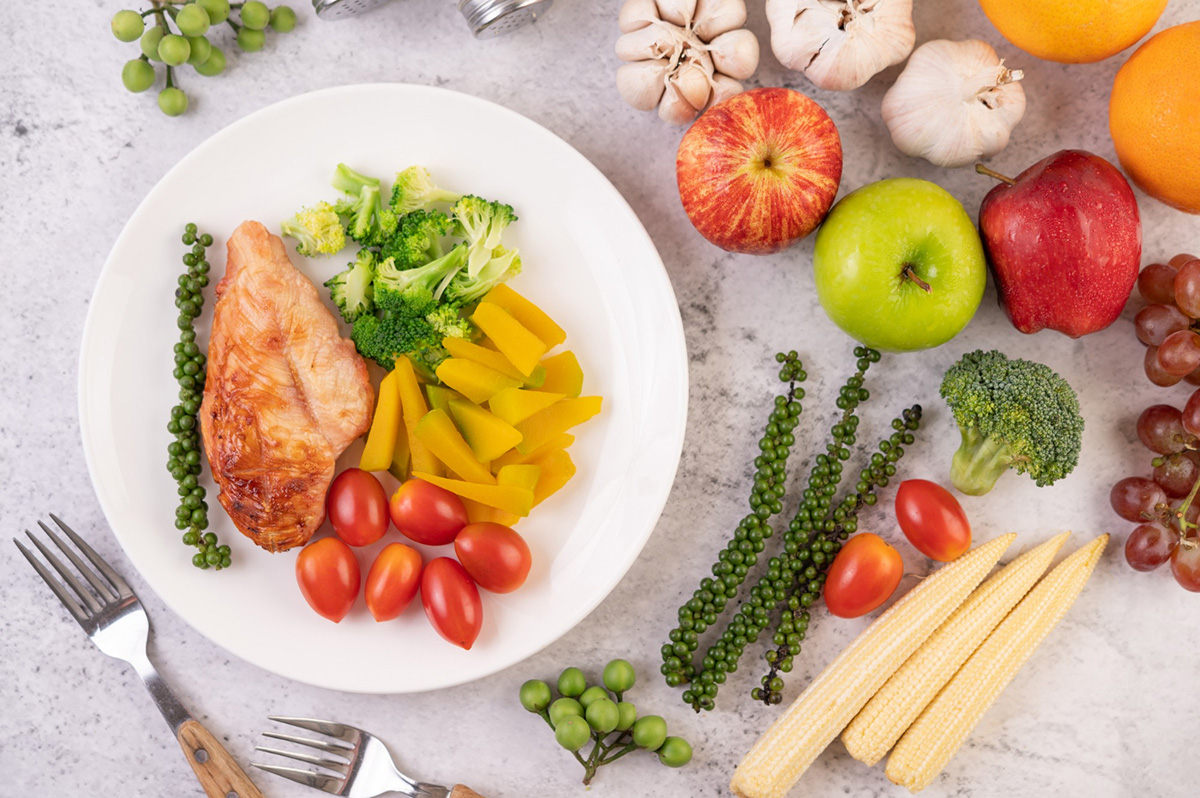A Dietician's Guide to Effective and Sustainable Weight Loss

Obesity rates in the United States have been rapidly increasing over the last few decades, and numerous health conditions have been linked to excess weight, including diabetes, heart disease, and cancer. Many people struggle with losing weight, and the plethora of information on the internet can be overwhelming and often contradictory. As a registered dietician, I have seen firsthand the impact that small, sustainable changes in one's diet and lifestyle can have on weight loss and overall health. In this blog post, I will provide a comprehensive guide to achieving healthy, effective, and sustainable weight loss.
1. Determine a Realistic Weight Loss Goal
The first step in losing weight is to set a realistic and sustainable goal. Losing 1-2 pounds a week is an attainable goal that can be maintained over a longer period. Crash diets or weight loss supplements are often not sustainable and may even damage your health. In addition, when setting your weight loss goals, it is essential to do it for the right reasons. Do it for your overall health and well-being, instead of solely for aesthetic reasons.
2. Focus on Nutrient-Dense, Whole Foods
One of the best ways to lose weight is to consume nutrient-dense, whole foods that are high in fiber, vitamins, and minerals. Foods such as fruits, vegetables, legumes, and lean protein sources should make up the majority of your diet. These foods are also lower in calories and more satiating, resulting in less snacking and calorie intake overall.
3. Control Portion Sizes
Managing portion sizes can be crucial in promoting sustainable weight loss. Even healthy, nutrient-dense foods can lead to weight gain if consumed in excessive amounts. Start by using measuring cups and a food scale to accurately determine serving sizes. Additionally, try eating smaller, more frequent meals throughout the day, as this can promote satiety and control cravings.
4. Stay Hydrated
Drinking plenty of water can help with weight loss in several ways. First, it can help suppress appetite and reduce the desire to snack unnecessarily. Second, adequate hydration helps to flush toxins out of the body and can prevent water retention. Finally, studies have shown that drinking water before meals can lead to consuming fewer calories overall.
5. Be Consistent and Patient
Remember, sustainable weight loss takes time and consistency. Setting small, realistic goals and tracking your progress can help you stay motivated, as well as providing valuable feedback on what is working for you and what isn't. If you slip up occasionally, don't stress over it too much - losing weight is all about creating a lifestyle and mindset that promotes health and wellness.
Conclusion
Achieving sustainable weight loss is a journey that requires patience, perseverance, and a healthy mindset. By following a diet rich in nutrient-dense, whole foods, controlling portion sizes, staying hydrated, and being consistent and patient, you can achieve your weight loss goals while maintaining optimal health and well-being. Remember that weight loss is only one aspect of a healthy lifestyle; there are many other benefits, such as improved mood, increased energy, and reduced risk of chronic diseases. So, if you're struggling with losing weight, take the first step today, and consult a registered dietician to help you get started on your journey towards a healthier, happier you! If you're you looking for Meals on Wheels in Chester County, PA, contact Empire Meals on Wheels today for more information.